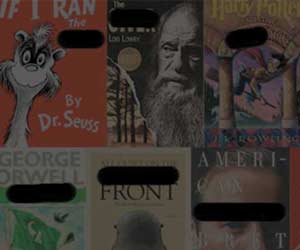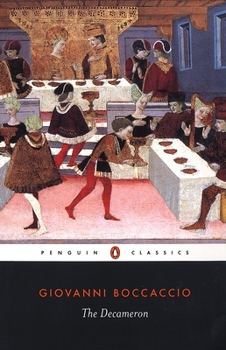Book Overview
A complete edition of the hilarious, bawdy, irreverent masterpiece of medieval Italy--and an inspiration for the Netflix dark comedy The Decameron--in an acclaimed translation
In the summer of 1348, as the Black Death ravages their city, ten young Florentines take refuge in the countryside. They amuse themselves by each telling a story a day for the ten days they are destined to remain there--a hundred stories of love, adventure...
Customer Reviews
Bawdy tales of love
Left me wanting more ...
The art of storytelling...
life is life
Il Decamerone Mentions in Our Blog

Okay, maybe we can’t eliminate censorship (yet...#goals), but we can celebrate Banned Books Week with gusto by reading all of the stories that someone (or someones) tried to silence, destroy, or restrict access to. Here are 50 of the most frequently banned and/or most recently challenged books, along with the "who, why, and how" of literary censorship in America.





